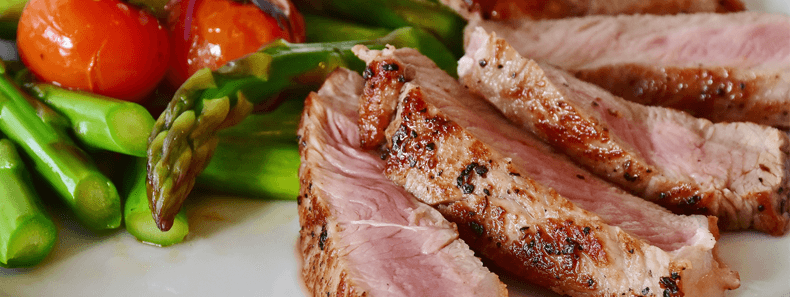
Pork Sensitivity | Signs & Symptoms
Pork sensitivity, also known as pork intolerance, is a condition in which a person experiences adverse reactions after consuming pork or pork products. The symptoms of pork sensitivity can vary, and may include:
- Nausea or vomiting
- Diarrhea or constipation
- Abdominal pain or cramping
- Bloating or gas
- Headache or migraine
- Fatigue or weakness
- Skin rash or hives
- Itchy or watery eyes
- Runny nose or sneezing
These symptoms may occur within a few hours of consuming pork or pork products, or they may be delayed and appear several hours later. In some cases, the symptoms may be mild and go away on their own, while in others they may be more severe and require medical attention.
Pork sensitivity is thought to be caused by a reaction to specific proteins or other compounds found in pork, such as histamines or sulfites. It is important to note that pork sensitivity is different from a pork allergy, which is a more severe and potentially life-threatening reaction to pork.
If you suspect that you have pork sensitivity, it is recommended to speak with a healthcare professional for evaluation and diagnosis. They may recommend avoiding pork or pork products, or suggest alternative sources of protein to meet your dietary needs.
How Long Will A Pork Sensitivity Last?
The duration of pork sensitivity can vary from person to person, and it depends on several factors such as the severity of the sensitivity, the amount of pork consumed, and the individual's immune system response.
In some cases, the symptoms of pork sensitivity may be mild and go away on their own within a few hours or days, while in others they may last for several days or weeks. In rare cases, the symptoms may persist for a longer period.
The most effective way to manage pork sensitivity is to avoid pork and pork products altogether. However, if a person accidentally consumes pork or pork products, the symptoms may last for several hours or days.
If you suspect that you have a pork sensitivity, it is recommended to speak with a healthcare professional for evaluation and diagnosis. They can provide guidance on managing your symptoms and avoiding triggers, as well as suggest alternative sources of protein to meet your dietary needs.
Which Foods To Avoid With A Pork Sensitivity
If you have a pork sensitivity, it is important to avoid all pork products. This includes:
Fresh or cured pork meat (e.g., bacon, ham, sausage, pork chops, pork tenderloin)
Pork-based products (e.g., pork rinds, pork gravy, pork broth, pork sausage rolls)
Processed meats that may contain pork (e.g., hot dogs, salami, bologna, deli meats)
Pork-based condiments or sauces (e.g., Worcestershire sauce, barbeque sauce, hoisin sauce)
Other pork-based ingredients or additives (e.g., gelatin, lard, pork fat)
It's also important to read food labels carefully, as pork may be present in unexpected places. Some food products, such as baked goods, may contain pork fat or lard as an ingredient.
If you are unsure about whether a food contains pork or pork products, it's best to err on the side of caution and avoid it. Instead, choose alternative sources of protein, such as chicken, turkey, beef, fish, or plant-based protein sources.
If you suspect that you have a pork sensitivity, it is recommended to speak with a healthcare professional for evaluation and diagnosis. They can provide guidance on managing your symptoms and avoiding triggers, as well as suggest alternative sources of protein to meet your dietary needs.
What alternative food should I eat with a pork intolerance?
If you have a pork intolerance, it is important to avoid all pork products, including fresh or cured pork meat, pork-based products, processed meats that may contain pork, pork-based condiments or sauces, and other pork-based ingredients or additives.
There are many alternative foods that you can eat to replace pork in your diet, including:
Other animal proteins: beef, lamb, chicken, turkey, fish, seafood, and eggs.
Plant-based proteins: legumes (such as lentils, chickpeas, and beans), tofu, tempeh, seitan, and nuts.
Dairy products: milk, cheese, and yogurt.
Grains and starches: rice, quinoa, potatoes, sweet potatoes, and corn.
Vegetables and fruits: all kinds of fresh or frozen vegetables and fruits.
It's important to make sure that you are still getting enough protein and other essential nutrients in your diet when you are avoiding pork. You may want to consult with a registered dietitian to help you plan a balanced and nutritious diet that meets your needs.

 Canada
Canada